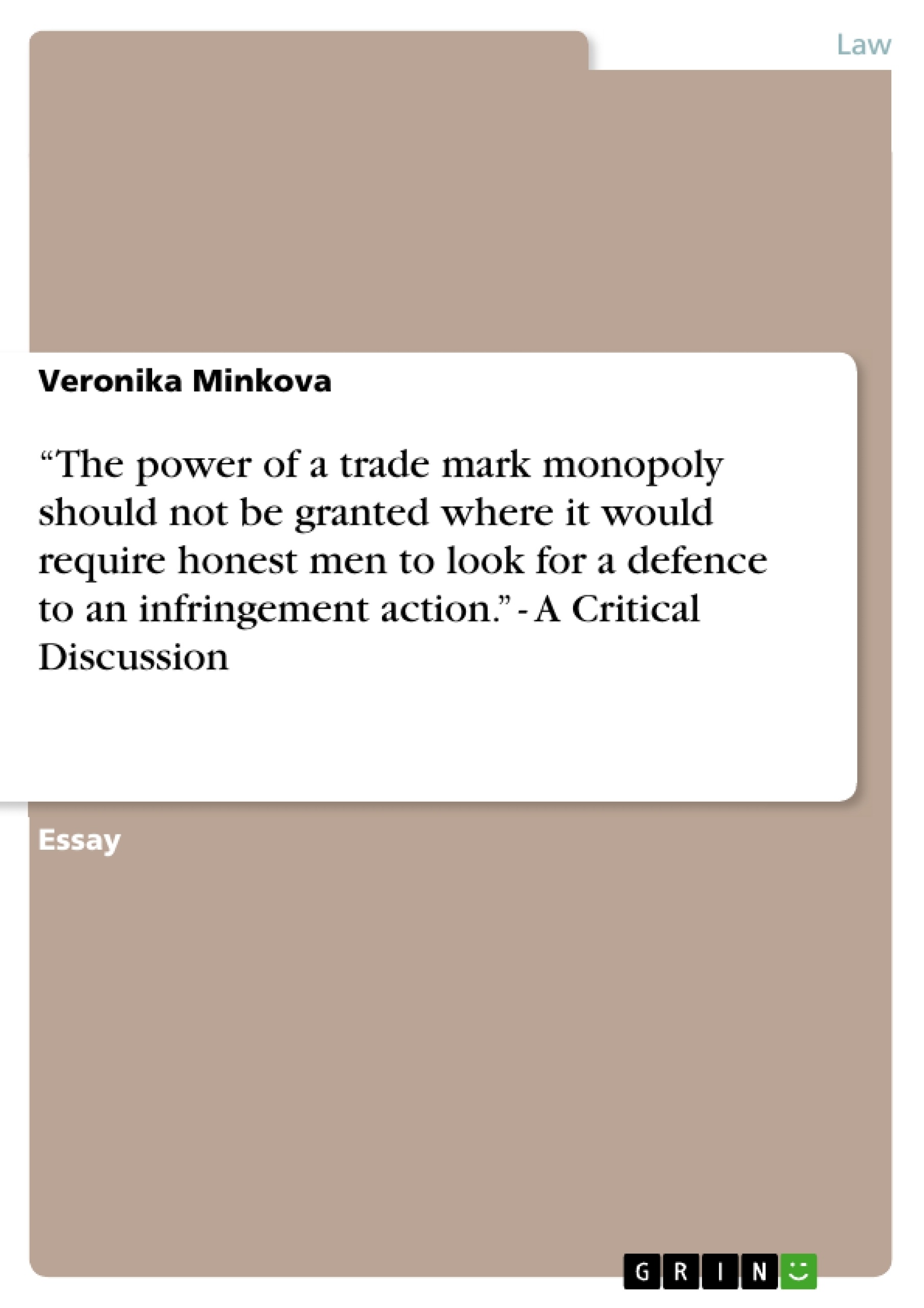One of the main functions of trade mark law is to reconcile conflicting interests of trade mark owners and third parties. The present essay identifies those conflicting interests and sheds light on how the legal framework attempts to strike a balance between preserving the rights of trade mark owners and securing the interests of third parties. The legal framework seeks to balance the interests of trade mark owners and other stakeholders such as the direct competitor, the consumer or the public at large. The first section of the essay outlines the tensions of trade mark law. Firstly, it focuses on the wide powers conferred upon the proprietor of a registered trade mark. Consequently, it identifies when the law provides for limitations of the monopolistic character of trade marks. The concept of ‘honest practices in industrial and commercial matters’ is identified also in the first section. The second section of the present essay looks more closely at the trade mark defences under Section 11 of the Trade Mark Act 1994.
Inhaltsverzeichnis (Table of Contents)
- Introduction
- The Tensions of Trade Mark Law
- Wide Powers Conferred Upon the Proprietor of a Registered Trade Mark
- Limitations of the Monopolistic Character of Trade Marks
- 'Honest Practices in Industrial and Commercial Matters'
- Trade Mark Defences
- Use of Own Name and Address
- Descriptive Uses
Zielsetzung und Themenschwerpunkte (Objectives and Key Themes)
This essay explores the complexities of trade mark law, focusing on the conflicting interests of trade mark owners and third parties. It examines how the legal framework strives to balance the rights of trade mark owners with the interests of competitors, consumers, and the public at large. The essay also sheds light on the limitations imposed on trade mark monopolies and the concept of 'honest practices in industrial and commercial matters' within the context of trade mark law.
- Balancing the interests of trade mark owners and third parties
- Limitations on the monopolistic character of trade marks
- The concept of 'honest practices in industrial and commercial matters'
- Trade mark defences under Section 11 of the Trade Mark Act 1994
- Interpretation of honest practices in relation to trade mark use
Zusammenfassung der Kapitel (Chapter Summaries)
The introduction highlights the primary function of trade mark law in reconciling the conflicting interests of trade mark owners and third parties. It sets the stage by outlining the essay's focus on analyzing the legal framework that attempts to achieve this balance.
The second section delves into the tensions inherent in trade mark law. It discusses the wide powers granted to registered trade mark proprietors and explores how the law imposes limitations on these monopolistic rights. The concept of 'honest practices in industrial and commercial matters' is introduced and its significance in balancing these interests is emphasized.
The third section focuses on the trade mark defences outlined in Section 11 of the Trade Mark Act 1994. It examines specific categories of use that are permitted despite the existence of a registered trade mark. This section delves into the historical evolution of trade mark law and how the current system is seen as more flexible and less restrictive.
The fourth section examines the specific defence of using one's own name and address. It explores the factors involved in determining whether such use is in accordance with honest practices, drawing insights from the Anheuser-Busch case and the ECJ's interpretation of Article 6 (1) (a) of the CTMR.
The final section explores the use of descriptive terms in trade mark law. It discusses how the registration process now focuses on the distinctiveness of a potential trade mark rather than solely preventing the enclosure of common language.
Schlüsselwörter (Keywords)
Trade mark law, trade mark owners, third parties, conflicting interests, balance of interests, monopolistic character, honest practices, trade mark defences, Section 11 of the Trade Mark Act 1994, descriptive terms, own name and address, Anheuser-Busch case, ECJ, CTMR, distinctiveness.
- Quote paper
- Veronika Minkova (Author), 2011, “The power of a trade mark monopoly should not be granted where it would require honest men to look for a defence to an infringement action.” - A Critical Discussion, Munich, GRIN Verlag, https://www.grin.com/document/179306




